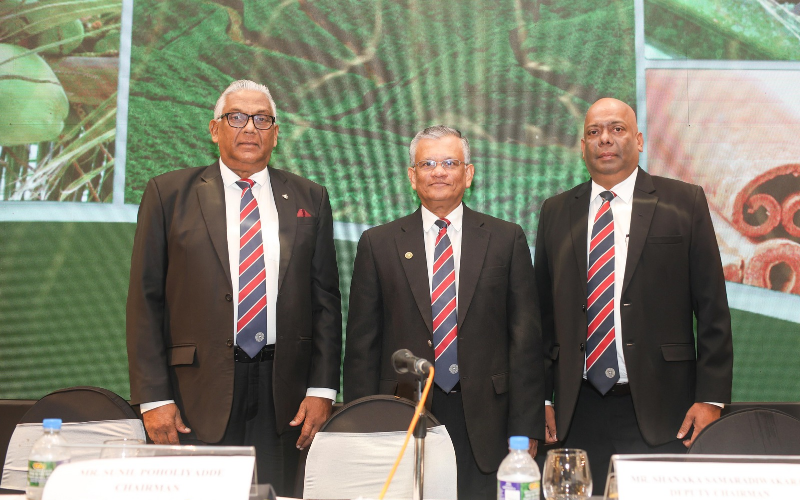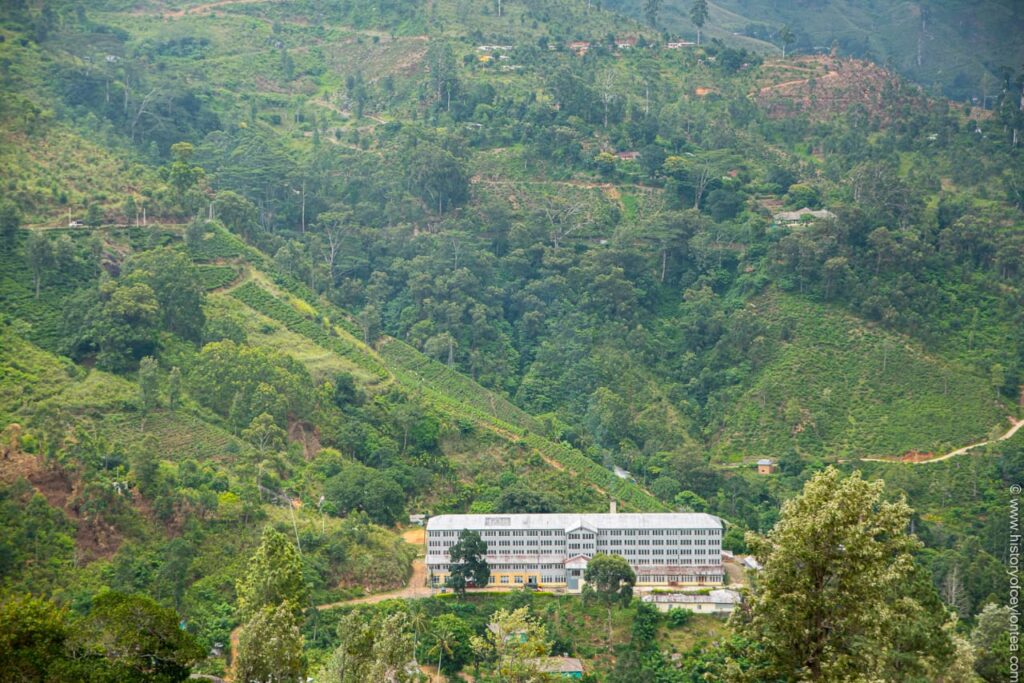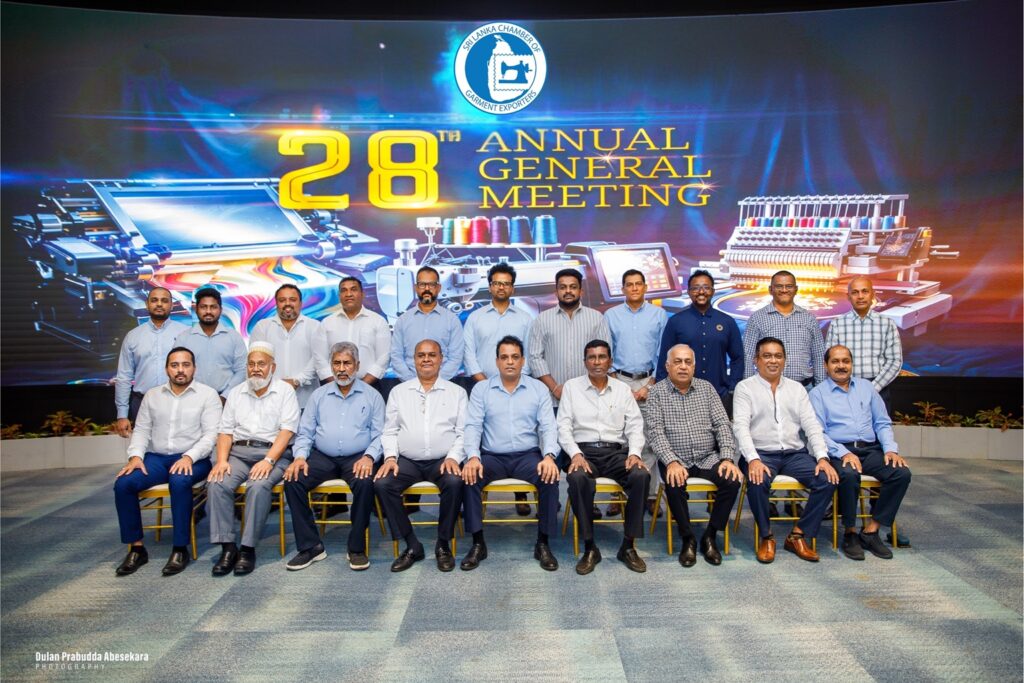• Incoming Chairman, Sunil Poholiyadde to prioritize innovation and diversification amid rising industry challenges
• Hails productivity-linked wage agreement as breakthrough moment for plantation sector
• Cautions 2024 tea production below target by 50 million kgs on weaker smallholder production
• Calls for policy stability and supportive land-use policies critical to facilitate necessary transitions
• Veteran planters, Jayantissa Ratwatte and Malin Goonetilike honored for lifetime industry service
Colombo, September 14, 2024 – The Planters’ Association of Ceylon (PA) held its 170th Annual General Meeting (AGM) on September 14, 2024, at The Galadari Hotel in Colombo. The event, graced by the presence of Chief Guest, Mohan Pandithage, Chairman and Chief Executive of the Hayleys Group, marked a pivotal moment for the nation’s plantation industry.
The AGM witnessed the formal handover of leadership from outgoing Chairman, Senaka Alawattegama, to Sunil Poholiyadde, who assumes the role for his second term. The transition comes at a critical juncture for the industry, facing significant challenges and opportunities.
In his final address, Alawattegama reflected on the substantial progress made during his tenure, notably the successful resolution of long-standing wage negotiations. He highlighted the introduction of a new wage structure that includes a daily minimum wage of Rs. 1,350 and a productivity-linked component of Rs. 50 per kilogram. This achievement, he noted, represents a significant victory for both workers and Regional Plantation Companies (RPCs), accomplished despite considerable challenges and pressures.
“As we move forward, decisions related to wages and policies must be made with the best interests of the entire industry—including workers—at heart,” Alawattegama stated. “We must ensure that our industry remains affordable and sustainable so that it can thrive for generations to come.”
Taking over the helm, Poholiyadde delivered an incisive speech outlining his vision for the future. He commended the industry’s collective resilience in successfully navigating the recent wage crisis, which had been considered a potential existential threat to the industry.
“On May 1st, 2024, a proposed wage increase to Rs. 1,700—a 70% hike—threatened to cripple our industry,” Poholiyadde remarked. “Recognizing the gravity of the situation, the PA took unprecedented steps, including legal action up to the Supreme Court. Our persistent efforts resulted in a more sustainable wage agreement, a testament to what we can achieve when we unite.”
Emphasizing the crucial role of innovation and technology in overcoming current challenges, Poholiyadde asserted, “We must embrace innovation to sustain our industry. Mechanization can provide relief, especially with our diminishing labor force.” He highlighted that since 1992, the industry has lost 50% of its workforce, adversely affecting production volumes. “We may not reach even 250 million kilograms of tea this year, although the industry had initially targeted over 300 million.”
Poholiyadde also underscored the necessity of adopting new technologies, mechanization, and automation in both field and factory operations to enhance productivity and remain competitive globally. “The technology exists globally; it’s a matter of us embracing and implementing it,” he said.
Addressing the pressing issue of diversification, he noted that agribusiness cannot be successful without adapting to climate change. “We initiated diversification into crops like oil palm and rubber but faced policy setbacks that halted progress,” he explained. “It’s imperative that we uphold the spirit of privatization by exercising our rights and ensuring authorities respect the agreements made during that time.”
Looking ahead, Poholiyadde called for policy stability and supportive land-use policies to facilitate necessary transitions in crop cultivation. “With increasing wages, unless we adopt new technologies, we can’t assure our industry and shareholders of adequate returns,” he cautioned. “Investments will only flow if there’s a promise of returns. It’s our duty as planters to ensure these returns to gain the confidence of investors and shareholders.”
He concluded by emphasizing the need for continuous effort and collaboration among RPCs, government bodies, and other stakeholders to drive the industry forward. “While there has been excellent work done so far, we cannot rest on our laurels. This is a continuous process, and I look forward to your support and cooperation in taking this association forward.”
Chief Guest, Mohan Pandithage, lauded the PA’s efforts and stressed the importance of innovation and adaptability moving forward. “The challenges are significant, but with strategic foresight, innovation, and collective action on product and market diversification, integration of technology and ESG principles, I have every confidence that this proud industry can chart a course to a brighter future,” he said.
During the event, the Planters’ Association of Ceylon and its membership conferred lifetime membership on two of the industry’s leading luminaries, Jayantissa Ratwatte and Malin Goonetilike in recognition of their lifetime services to the Association and the plantation industry.









